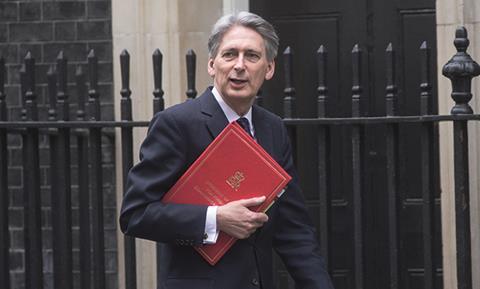The treasury has many issues to tackle in the Spring budget, not least housing, planning, infrastructure and commercial property.

Three heads of department at Carter Jonas have outlined some of the steps that they believe need to be featured in tomorrow’s statement:
Rory O’Neill, head of residential
The UK property market’s recent slowdown can be traced back to the Stamp Duty reforms of November 2014. With increased transactional costs for properties priced over £937,000, buyers at the top end of the market have been crippled by the cost implications of moving house, creating an inevitable hiatus – despite greater mortgage availability and improvements in affordable borrowing.
With vendors reluctant to adjust asking prices and an increasing reliance on overseas money to inject liquidity into London’s market, we are cultivating a potentially toxic landscape for UK residential property.
A reduction in Stamp Duty costs is the final catalyst that the market needs to boost transactions and we wholeheartedly call for this in the Spring Budget.
While George Osborne attacked the residential market two and a half years’ ago, we are optimistic that, with his experience as a developer, Philip Hammond will work to create a more favourable environment in which housing can flourish.”
Nick Taylor, head of planning & development
One concern that we have, following the Housing White Paper last month, is that a lot of focus is being placed on delivery of housing on greenfield sites at a time when communities are demanding greater use be made of brownfield land, and that greenfield releases are kept to a minimum.
With this in mind, and given the viability challenges of developing brownfield sites, we would urge the chancellor to turn his attention to giving greater financial encouragement to delivery of housing on brownfield land and specifically sites in town centres. There are a number of fiscal measures that we suggest could be considered to boost housing supply from these sources to complement greenfield releases.
We would urge the chancellor to turn his attention to giving greater financial encouragement to delivery of housing on brownfield land and specifically sites in town centres
First, we consider there remains a rather confusing message about Build to Rent, and how this will work alongside conventional housing delivery, and any financial incentives that might ease the delivery of these homes would be welcomed.
Second, local councils need to be given far more authority and scope to build homes, by leveraging against their assets. At present, these are far too limited, and this is a clear barrier to the delivery of housing on brownfield and town centre sites. With appropriate financial freedoms, they could deliver more brownfield/town centre housing.

Third, the charge of VAT on the refurbishment of existing properties is arguably hindering the viability of development of some brownfield and town centre sites. Some form of tax relief, even if temporary, would provide a strong fiscal incentive to encourage activity in this sector, and could have a significant and positive impact.
What is clear is that the Government needs to demonstrate some clear steps forward following the publication of the white paper to ensure that talk translates into action.
Scott Harkness, head of commercial
We hope that the Spring Budget addresses a tangible roll out strategy for the business rates re-evaluation, so we have a clearer picture of how it will affect both retailers and office occupiers in the immediate and longer terms.
There is a great deal of concern from occupiers who have been hit with substantial increases of as much as 40% in some areas. Without a measured roll out, the re-evaluation could have far reaching impact not only for businesses themselves but certain areas of our towns and cities.
“Continued commitment to regional infrastructure projects is critical to ensure economic prosperity across the UK. Whilst the focus on large scale infrastructure projects of late is encouraging, smaller localised initiatives are central to the continued growth and development of regional markets as they attract further investment and much needed speculative development. We hope to see some decisive leadership from the Government on this issue.”































No comments yet